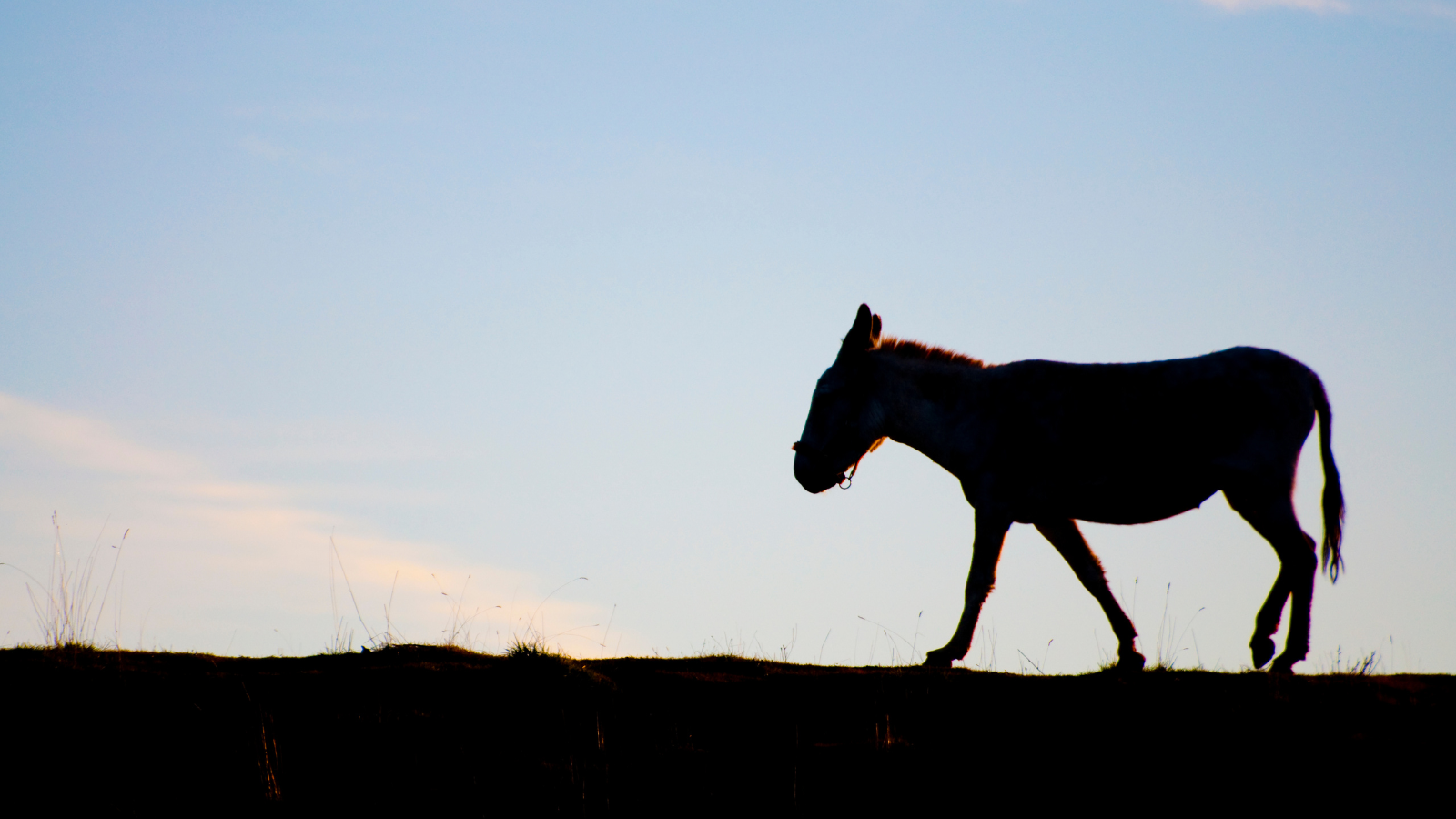Commentary on Parashat Ki Teitzei, Deuteronomy 21:10-25:19
This week’s Torah portion, Ki Teiztei, contains more commandments than any other portion in the Torah. One common theme among them is the centrality of treating all people with dignity, especially those who are marginalized. But it is not only human beings who must be treated in this way, but animals too are deserving of kindness and respect.
Perhaps the most famous example of this is the verse in this week’s portion that describes the requirement to send away a mother bird before taking her eggs. According to Rashi, this is meant to spare her the pain of seeing her offspring taken away. From this passage, the sages formulated a general principle of tza’ar ba’alei chayim, avoiding unnecessary pain to animals.
Less well-known is Deuteronomy 22:4, which teaches this: “If you see your fellow Israelite’s donkey or ox fallen on the road, do not ignore it; you must raise it together.” One can imagine the weight that an animal transporting goods would have to carry. If it lost its balance and fell, the animal would not only be uncomfortable, but maybe in danger of its life under the burden. The Torah here demands that human passersby not ignore the animal’s plight and put it back on its feet.
The Etz Hayim Torah commentary notes that the best way to do this was to have two people lift the load on each side of the animal. Other commentators note that even if the animal belongs to someone with whom you don’t have a good relationship, you’re still required to help the animal.
With your help, My Jewish Learning can provide endless opportunities for learning, connection and discovery.
Anyone who has experienced loss, knows the sensation of feeling weighed down by grief, a burden so heavy that we lose our bearing. We can feel as if we have lost all sense of balance and equilibrium. Time collapses, our sleep cycles can become erratic, days and nights melding into one another. The confounding nature of time can cause bodies, hearts, minds and spirits to lose their balance. We may feel as if all we can do is stay on the ground, held down by an unimaginable load.
But the message of Ki Teitzei may be that we aren’t expected to pull ourselves up without help. We need others to help us stand and regain our balance. Just as the donkey needs help — ideally, one person on each side — so too do we need others during the grief-filled times in our lives. This is why following the death of a loved one, Jewish tradition instructs us to recite the Mourner’s Kaddish in the presence of a minyan, allowing others to support us and help us stand. And it’s why throughout the first week of mourning, it’s traditional for communities to provide food, care and love to lift up the bereaved.
Unlike a fallen beast of burden, who continues to carry its burden after being returned to its feet, those experiencing grief may prefer not to carry the burden of loss at all, but to leave it on the ground and move forward without the heaviness. But fully unburdening ourselves of grief may not be the healthiest choice. Instead of pushing the burden away, perhaps it can be reframed.
“Grief and love are sisters, woven together from the beginning,” the writer and psychotherapist Francis Weller has written. “Their kinship reminds us that there is no love that does not contain loss and no loss that is not a reminder of the love we carry for what we once held close.”
Grief never completely disappears — at birthdays, anniversaries, holidays and other random moments, the heaviness of grief may descend. But it can lessen in weight, particularly if we link it with love. Grief and love, as Weller teaches, are inextricably linked. By carrying our burden, we also carry our love.



